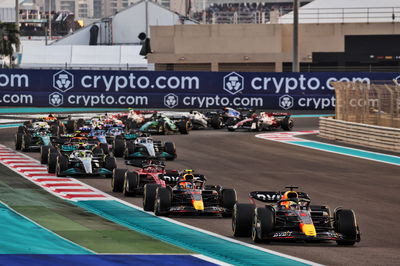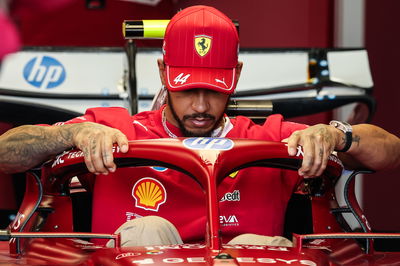F1 set for crunch meeting to ‘tidy up’ 2026 PU regulations

Last August, governing body the FIA approved the new cycle of F1 engines that will feature increased electrical power and 100% sustainable fuels when they are introduced in 2026.
Audi have already announced an entry as an engine supplier and sister Volkswagen Group brand Porsche remain interested in making an F1 power unit. Meanwhile, the Andretti Group recently stated their intention to join the F1 grid together with General Motors through their luxury brand Cadillac.
Although the power unit regulations have already been published, a meeting involving F1 stakeholders and the 10 existing teams is due to take place at the end of January to thrash out the remaining details.
“The power unit regulations are out and published, they’re not finished, we’re now really tidying up,” Symonds said.
“The chassis regulations we have been working on for a while now, a couple of years on some basic layout, but on January 25 we’ve got a big meeting in Geneva with all the teams, and that’s the first sort of real interaction where we sit down with the teams and we say ‘here are the concepts we want to bring into ’26’ and we start getting their views on that.
“End of January is when we really turn our attention to spending a lot more time with the teams themselves.”
Symonds stressed one key aim of the looming power unit regulation overhaul is to help “level the playing field” for newcomers.
“We set a lot of high-level objectives with the new regulations, and one of the high level objectives for the ’26 power unit was to level the playing field for newcomers,” he said.
“The combustion on a current Formula 1 engine is very, very different to the combustion on what I’d call a conventional one. It’s damn nearly a diesel running on gasoline. It’s a very complex combustion.
“It’s not something where if you’ve been designing racing engines for years and suddenly you’re tasked with a Formula 1 engine, it’s quite different.
“So we wanted to level the playing field a bit there, because getting people like Audi and Porsche, Cadillac have raised their head, there are others I won’t name - that’s not a bad thing.
“It’s quite good to have those names in the sport.”












